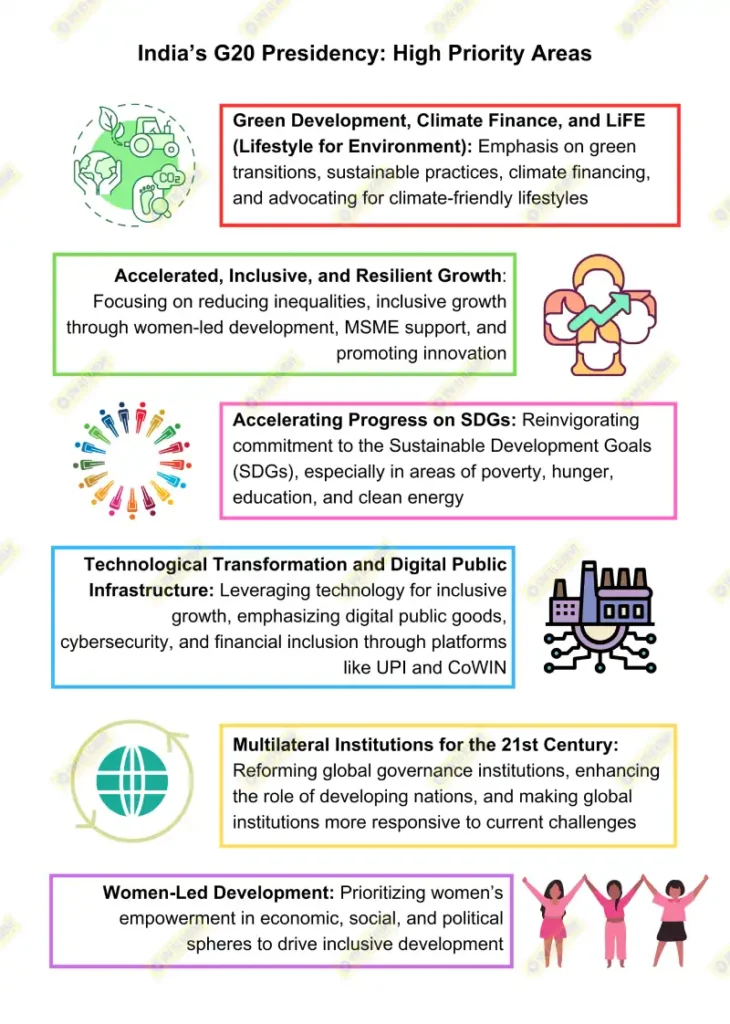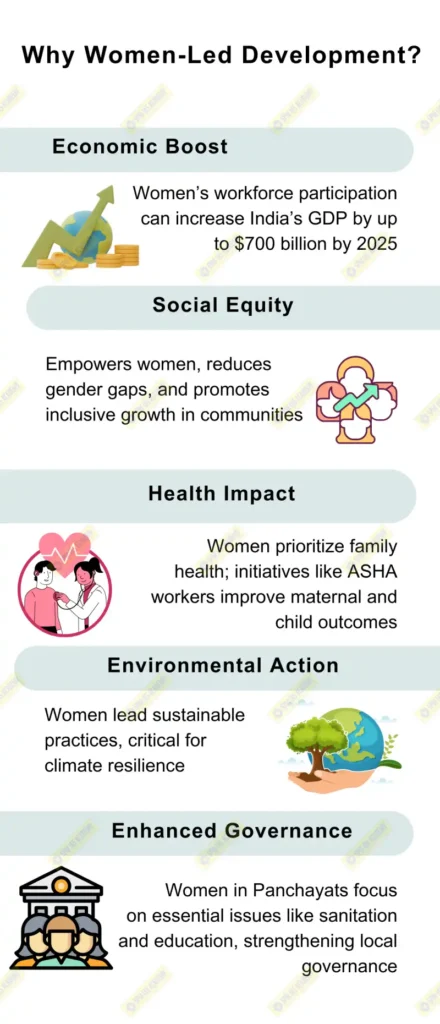India’s emphasis on women-led development as a high-priority agenda during its G20 presidency underscores the transformative potential of empowering women to drive economic, social, and environmental progress. Moving beyond the traditional model of women’s development as a subset of social welfare, women-led development envisions women as active agents of change, central to achieving inclusive growth and sustainable development. In the Indian context, prioritizing women-led development presents numerous benefits:
1. Economic Growth and Productivity Enhancement
- Empowering women can unlock substantial economic growth. IMF studies show that increasing women’s participation in the workforce could boost India’s GDP by up to 27%. Women-led enterprises, especially small and medium-sized businesses, have shown high efficiency and resilience, contributing to job creation and economic diversification.
- Programs like the Pradhan Mantri MUDRA Yojana (PMMY) have successfully provided financial assistance to women entrepreneurs, enhancing their role in the economy. By promoting access to credit, training, and digital platforms, India can harness the entrepreneurial potential of women, fostering sustainable growth and greater economic resilience.
2. Social Equity and Community Development
- Women-led development promotes social equity by addressing gender gaps in education, healthcare, and decision-making. Educated and empowered women invest more in their children’s health and education, leading to improved human capital development. This, in turn, benefits entire communities, fostering intergenerational improvements in social well-being.
- Initiatives like Beti Bachao, Beti Padhao and POSHAN Abhiyaan have underscored the importance of women’s health, nutrition, and education. By ensuring women’s equal access to resources and opportunities, India can create a more equitable society that benefits all sections of the population.
3. Environmental Sustainability
- Women are often at the forefront of climate resilience, with a natural inclination toward sustainable resource management. In rural India, women-led self-help groups (SHGs) have led efforts in afforestation, water conservation, and waste management, proving instrumental in environmental conservation. Studies indicate that empowering women to participate in climate action increases the likelihood of sustainable outcomes.
- By promoting initiatives like NABARD’s climate-smart agriculture programs and women-centric renewable energy projects, India can integrate women’s knowledge and leadership into environmental policies, supporting both sustainable development and climate resilience.
4. Improved Governance and Inclusive Policy-Making
- Women’s involvement in governance, whether through Panchayati Raj institutions or national policy-making, has demonstrated a positive impact on transparency, accountability, and responsiveness in decision-making. States with higher women’s representation in local bodies report better outcomes in areas like sanitation, education, and healthcare.
- The 33% reservation for women in local government has already yielded positive results, with women leaders addressing community-specific issues more effectively. Expanding women’s representation across all levels of government can help create more inclusive policies that address diverse social needs.
Promoting women-led development aligns with India’s vision for a just, equitable, and sustainable society. By focusing on women as active participants in growth, India can enhance productivity, ensure social equity, foster environmental resilience, and improve governance outcomes. Through targeted initiatives, skill development, and equal representation, India’s focus on women-led development at the G20 and beyond can serve as a model for inclusive growth, enabling women to drive India’s progress toward becoming a global leader in sustainable development.













